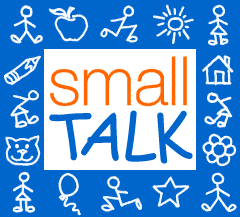Often when children have trouble communicating their thoughts and feelings, they become frustrated. Here are some practical tips that may be helpful.
- Talk to your child about anger and frustration. Try to help your child identify successful and not-so-successful ways of expressing frustration.
- Help your child recognize the situations which are likely to cause frustration.
- Teach your child control words such as "no", "stop", "wait", "my turn", "me too." If your child can’t say these words, help him/her learn to express the messages in other ways (eg., gestures, signs, symbols, photographs).
- Provide opportunities for your child to play successfully with other children. Find play materials for your child that don’t require a lot of language for successful use.
- Tell other children that your child is trying to be their friend. Stay nearby to help resolve problems.
- Praise your child when he/she deals with frustration successfully.
- Even though your child may be having trouble communicating thoughts and feelings, don’t hesitate to set some rules about expressing frustration. Be sure your child knows these rules before you put them in place.
- Watch what your child is trying to tell you. Look at his/her actions and facial expressions eg. a child holding his stomach may be trying to tell you he feels sick.

